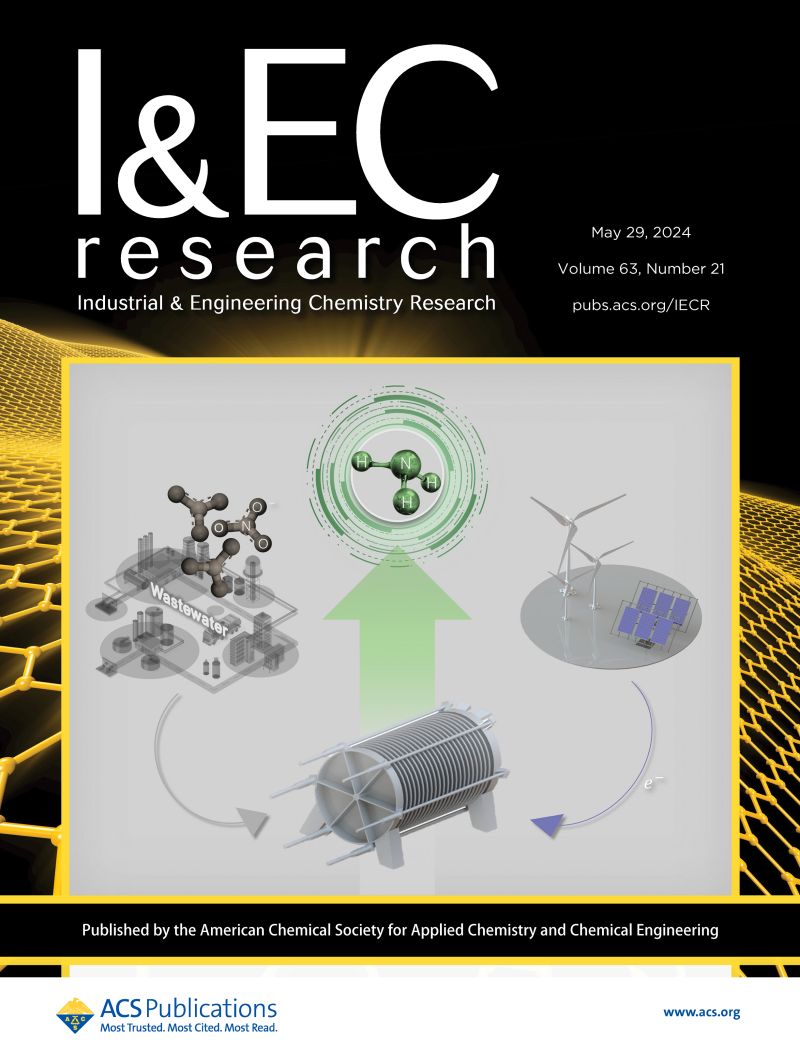Recyclable High-Performance Thermosetting Plastics from Isosorbide Based on Diels–Alder Reaction
IF 3.8
3区 工程技术
Q2 ENGINEERING, CHEMICAL
引用次数: 0
Abstract
The presence of covalent cross-linked networks poses significant challenges for the recycling and reprocessing of thermosetting plastics. This study focuses on the design and synthesis of a series of novel biobased thermosetting polymers using isosorbide, furfuryl amine, and two structurally distinct bismaleimide cross-linkers based on reversible Diels–Alder (DA) reactions. Nuclear magnetic resonance (1H NMR) and Fourier transform infrared spectroscopy (FTIR) were employed to confirm the successful preparation of isosorbide/furfuryl amine linear prepolymer (ISFA-OH) and isosorbide/furfuryl amine DA cross-linked polymer (ISFA-DA). The mechanical and thermal properties of ISFA-DA could be effectively and rapidly tuned by adjusting the structure and content of the maleimide cross-linkers, achieving tensile strengths ranging from 8.2 to 79.8 MPa, elongations at break from 6.5 to 100%, and glass transition temperatures (Tg) between 26 and 93 °C. Differential scanning calorimetry (DSC) and dynamic mechanical analysis (DMA) results confirmed the presence of thermal reversible DA and retro-DA reactions within the ISFA-DA cross-linked polymers. The thermal reversible DA reaction endows the ISFA-DA cross-linked polymer with recyclability. We investigated the mechanical properties before and after recycling through both thermal solution and thermomechanical recycling methods, finding that the ISFA-DA cross-linked polymer retains over 90% of its original mechanical strength after thermal solution and thermomechanical recycling. This work provides a novel and promising strategy for design and preparation of a series of high-performance-biobased thermosetting materials with adjustable thermomechanical properties and excellent recyclability.

求助全文
约1分钟内获得全文
求助全文
来源期刊

Industrial & Engineering Chemistry Research
工程技术-工程:化工
CiteScore
7.40
自引率
7.10%
发文量
1467
审稿时长
2.8 months
期刊介绍:
ndustrial & Engineering Chemistry, with variations in title and format, has been published since 1909 by the American Chemical Society. Industrial & Engineering Chemistry Research is a weekly publication that reports industrial and academic research in the broad fields of applied chemistry and chemical engineering with special focus on fundamentals, processes, and products.
 求助内容:
求助内容: 应助结果提醒方式:
应助结果提醒方式:


